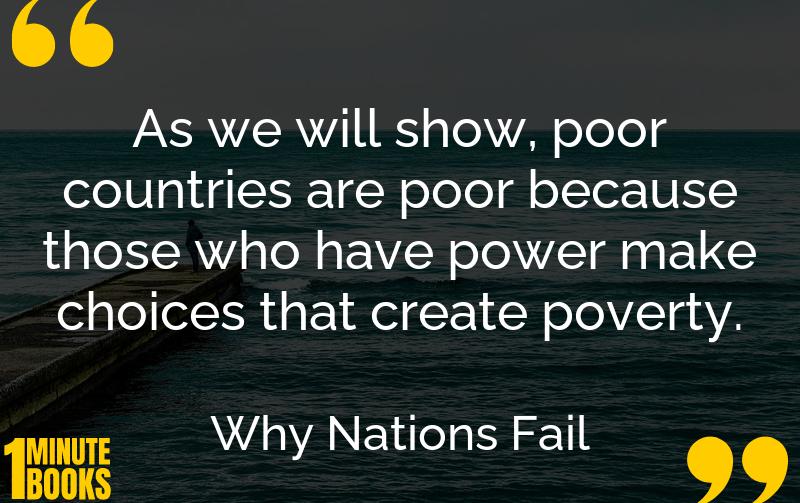
Why Nations Fail explores the roots of inequality, attributing poverty to poor political decisions rather than geography or culture. The book highlights how institutions shape the prosperity of nations.
Main Lessons
- Institutional differences are key to understanding disparate living standards between nations.
- Critical junctures, such as historical events, can alter a country’s trajectory, affecting its institutions.
- Inclusive economic and political institutions promote participation and representation, leading to prosperity.
- Extractive institutions benefit a select group, often leading to economic stagnation and inequality.
- The Black Death is a historical example of a critical juncture that changed Europe’s socio-political landscape.
- Institutional drift can occur when similar regions experience different critical junctures, leading to diverse economic paths.
- Historical events do not doom a country’s future; change is possible through inclusive institutions.
- Foreign aid should target empowerment and restructuring extractive institutions for lasting impact.
- Social movements can catalyze the shift from extractive to inclusive institutions, as seen in Brazil.
- Breaking free from the cycle of poverty requires empowerment and inclusive institutional change.
- Economic freedom and strong public services contribute to the success of inclusive institutions.
- Grassroots movements play a critical role in resisting oppressive systems and fostering prosperity.








